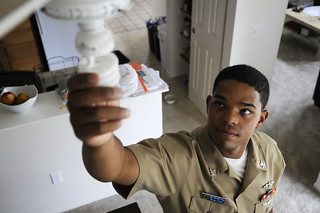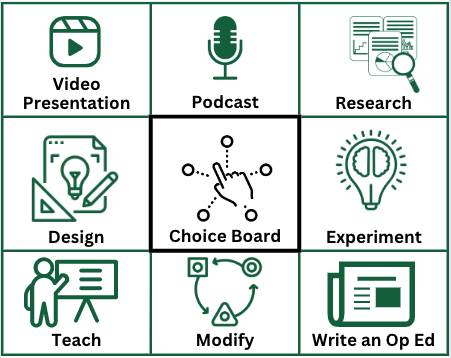Being More Efficient
By Carolyn Hoessler
“efficient |iˈfiSHənt|
adjective
- (esp. of a system or machine) achieving maximum productivity with minimum wasted effort or expense
- (of a person) working in a well-organized and competent way
- [ in combination ] preventing the wasteful use of a particular resource” –(New Oxford American Dictionary”, 3rd Edition, 2010, Oxford University Press)
Efficiency focuses on the level of relevant output achieved relative to the amount of effort. Perhaps it is like the phrase “Work better, not harder” or “lift smarter, not harder”.
So what does being efficient mean for teaching? What does being efficient mean for curriculum renewal?
Set your goals:
 Focus energy on the questions/areas that are most important. Get the “most bang for your buck”. What is most important for your course or program may be different from others’ courses or programs, so being “efficient” may look different too. For example, how many people does it take to screw in a light bulb efficiently? One, if the goal is to disrupt the routine of as few people as possible; two, if safety is a priority and a ladder is involved; a whole class, if hands-on experience is valued.
Focus energy on the questions/areas that are most important. Get the “most bang for your buck”. What is most important for your course or program may be different from others’ courses or programs, so being “efficient” may look different too. For example, how many people does it take to screw in a light bulb efficiently? One, if the goal is to disrupt the routine of as few people as possible; two, if safety is a priority and a ladder is involved; a whole class, if hands-on experience is valued.
Be selective:
You could measure everything all the time, or just what is sufficient to draw conclusions. Choose the best measures for what you are focusing on. Try to assess important knowledge and skills to capture the signal more than noise.
Utilize the wheel instead of reinventing it:
Have an idea, but not sure of the detail? Look for what has worked for other people in your department, discipline, and beyond – there is a whole field of study on teaching and curriculum development! Unsure where to look? Ask a mentor, ask a colleague teaching a similar course or using the technique, or ask one of us at the GMCTE.
Think longitudinally/Avoid perfectionism:
Yes, this is the first time, but will likely not be the only time you will teach this topic or measure in this area. It won’t be perfect, but once it is good enough to try, try and then revise.
Document progress:
Sometimes it is hard to see how far we have travelled when we are looking at the next step and vaguely remembering the last one. Document the changes, the lessons learned and your successes. Share these insights with your students, colleagues, conference attendees and others. Allow students to see that you are building on their feedback, allow colleagues near and far to learn from your experiences and findings. If you’re thinking about presenting or publishing student responses and data, make sure to chat with the ethics office to find out about ethics exemptions and approvals.
The challenge of competing demands and the pressures to avoid wasting time and other valuable resources might seem a threat to good teaching, but perhaps they are a motivation for change. Similarly, following a schedule may be a constraint or a great way to Carve out Creating time. I would love to hear how you have become more efficient in your teaching, or discuss quick ways of marking, surveying your program, or other intriguing challenges. Our door is open at the GMCTE across from the Murray Library entrance – stop by on your way for coffee or drop us a line.
Picture courtesy of Official U.S. Navy Page via Flickr with a Creative Commons license (Attribution – Some rights reserved)


